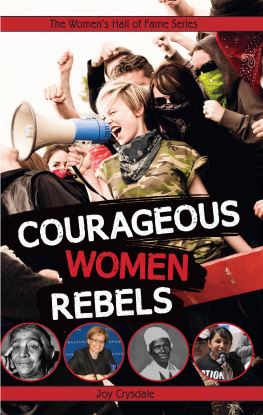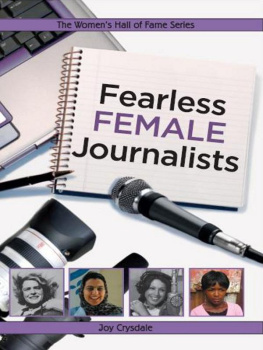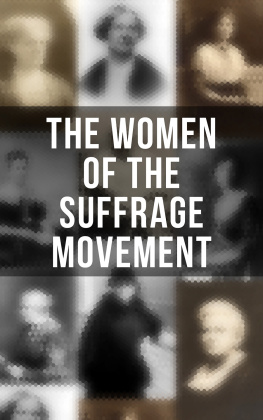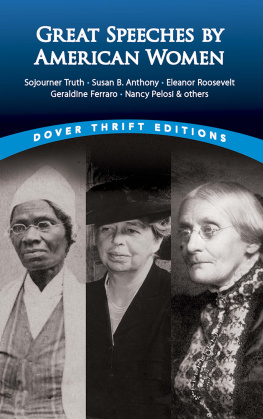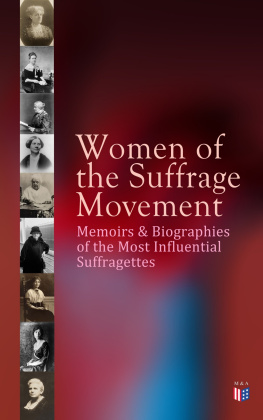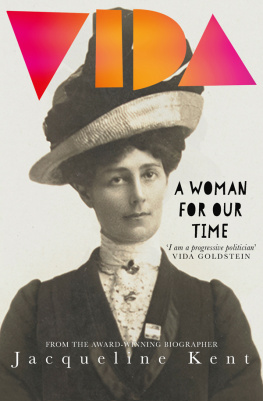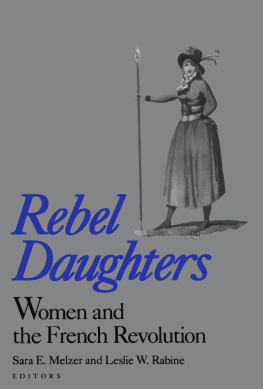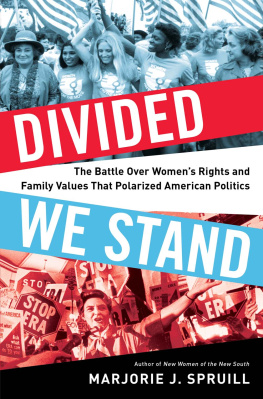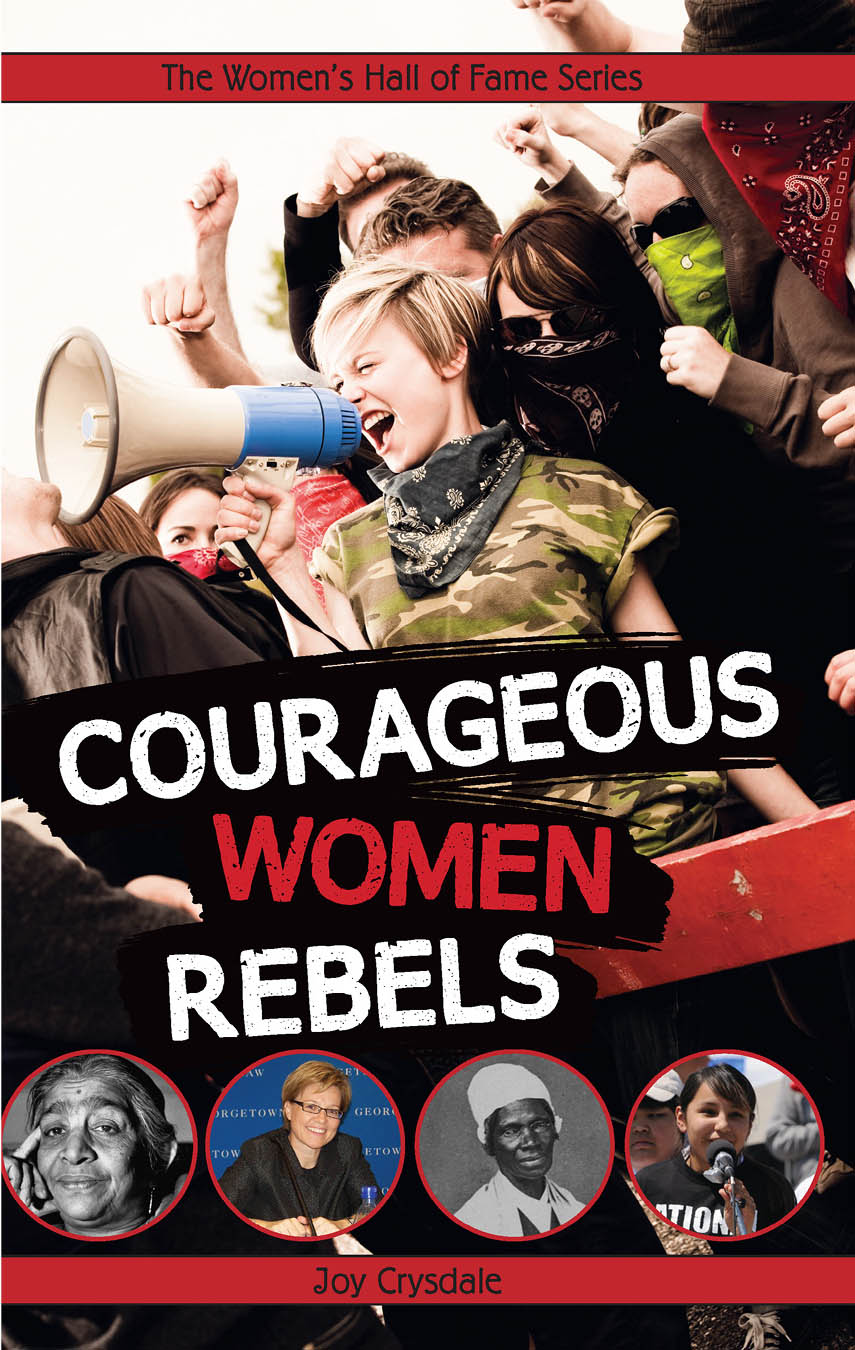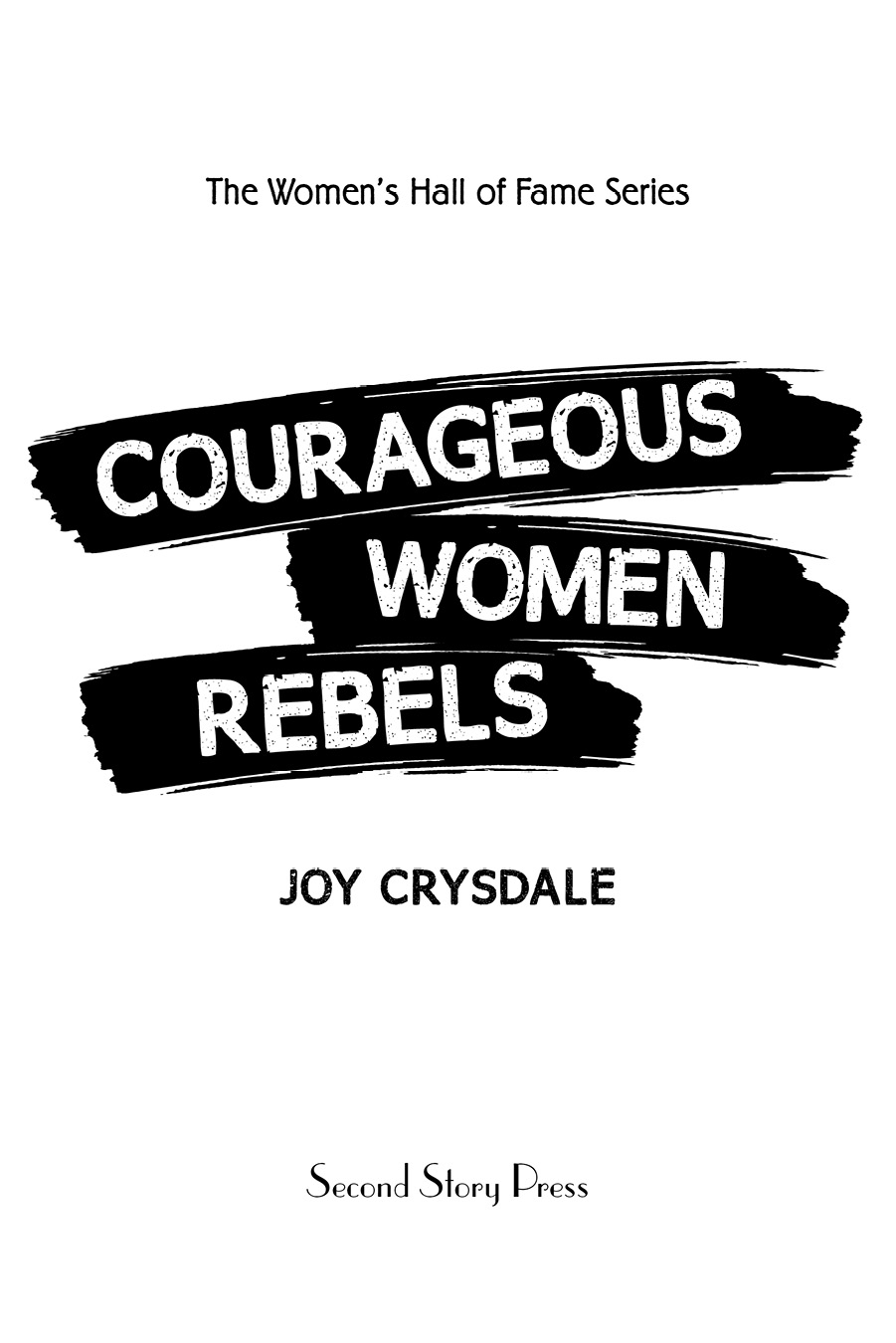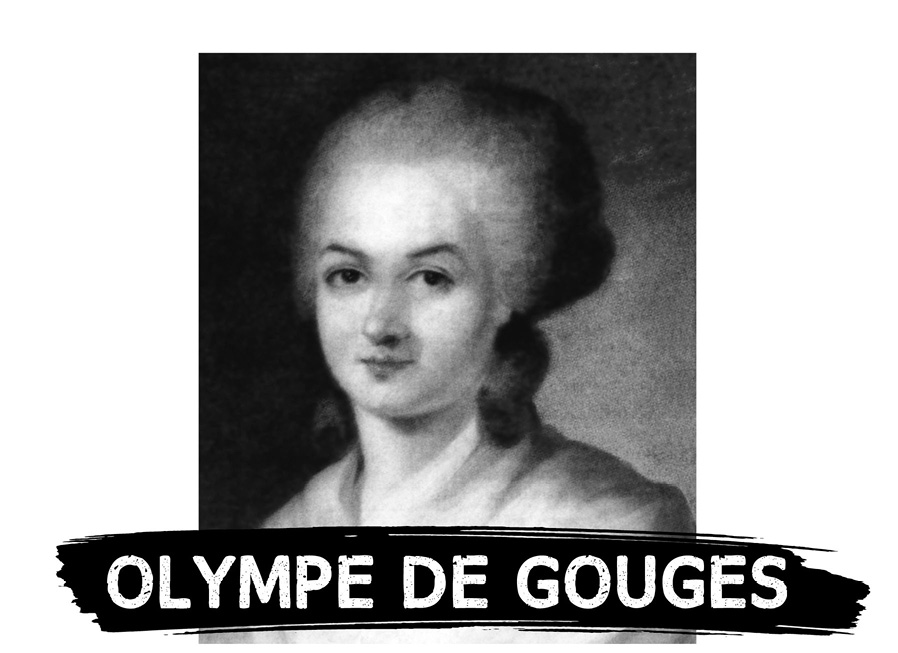Library and Archives Canada Cataloguing in Publication
Crysdale, Joy, 1952
Courageous women rebels / Joy Crysdale.
(The women's hall of fame series)
Issued also in print format.
ISBN 978-1-927583-00-5
1. Women social reformerBiographyJuvenile literature.
2. Women political activistsBiographyJuvenile literature.
I. Title. II. Series: Women's hall of fame series
HN17.5.C79 2013 j303.48'409252 C2012-90817XX-XX
Copyright 2013 by Joy Crysdale
Editor: Kathryn White
Designer: Melissa Kaita
Cover photos and icons istockphoto.com
Second Story Press gratefully acknowledges the support of the Ontario Arts Council and the Canada Council for the Arts for our publishing program. We acknowledge the financial support of the Government of Canada through the Canada Book Fund.

Published by
Second Story Press
20 Maud Street, Suite 401
Toronto, ON
M5V 2M5
www.secondstorypress.ca
Dedicated to the courage and rebel spirits of my cousin,
Lois Kennedy, and my sister, Mary Sue Poirier.
They did not realize how much they would be missed.
We love rebels at least the ones in books and movies. They break the rules, turn a blind eye to authority, follow their own path, and dont care what anyone thinks. They are romantic figures, and we imagine we could be like them. In real life, though, most of us trudge along, doing what were told, accepting the way things are. And we find real rebels a bit annoying.
Almost all the women in this book are a particular type of rebel. They are activists: people who devote themselves to change. They had the ability to see long before others did that slavery, inequality of women, inequality due to race, discrimination against people considered different, cruelty to animals, political tyranny, and more, were terribly wrong. Then they tried to do something about it. Most people didnt understand what these women were rebelling against. They thought all these things were normal, the way it was supposed to be. And they wanted them to shut up.
None of the women in this book were willing to do that. Some of them lost their lives because of it. All of them put themselves at risk. They did so and this is the most important point not for their own sake, but because they saw there was something bigger and more important than their individual lives: a need for justice.
Olympe de Gouges of France was a visionary in the 1700s who called for the kind of womens rights that wouldnt be taken seriously until two centuries later. She was executed, and dismissed as insane. Former slave Sojourner Truth fought for the abolition of slavery and the vote for women in the 1800s. She would live to see one, but not the other, achieved.
Others also died before their goals were accomplished. Ruth First was killed by a letter bomb sent by South African police, before the racist system she worked to overthrow was finally dismantled. Sarojini Naidu lived to see the end of British rule in India, a cause she was jailed for numerous times. But she also campaigned for equality between men and women, and between all castes and religions in her country, and those battles remain to be won.
For more than forty years, Gloria Steinem has been a second-wave feminist leader. Although some of the movements goals have been achieved, there have also been disheartening setbacks. Pacifist Joan Baez was able to see an end to the war in Vietnam, but there is never an end to war.
All the women in the book have remarkable personal stories and childhoods, but two that stand out are Leilani Muir and Temple Grandin. Leilanis mother put her in a mental institution, although there was nothing wrong with her. She was sterilized there made physically incapable of having children because the government believed so-called mental defectives were a threat to society. Temples mother, on the other hand, never gave up on her autistic child. She saw her daughter earn her PhD and discover that autism could be a gift. Temples autism allowed her to understand animals, whose rights she now fights for.
Michelle Douglas took on the biggest fight of her life with the support of her family. An outstanding officer, she was kicked out of the military because she was a lesbian. Shannen Koostachins family taught her pride in her aboriginal heritage. That gave her the strength to organize, at age thirteen, what has been called the largest youth-led childrens rights campaign in Canadian history.
These ten women had a variety of ways to get their messages out, from writing to music, from public speaking to the Internet, from journalism to the court system. Most believed in using non-violent methods, except for Ruth First, who became convinced peaceful means could not achieve her goal. Some were driven to do what they did because of religious faith, and many fought for womens rights in addition to their other goals. Seeking justice for others, they realized their own gender was not receiving equal rights.
There were so many women and causes that could have been included in Courageous Women Rebels . There simply wasnt room. However, to read more about environmentalists and other peace, native rights, and political activists, I refer readers to the other Womens Hall of Fame books.
It sometimes takes years, even centuries, to catch up to rebels whose clarity of thinking and daring action sets them apart. They are shining examples of how people can make a difference. Still, for those of us less-daring non-rebels, every day it is possible to see ways in which we can put others before ourselves, and make the bigger picture more important than the small things in our individual lives. Its not easy. Its incredibly hard. But I hope these womens stories inspire all of us to try.
Joy Crysdale
"Woman is born free and
remains equal to man in rights . "
1748 1793
M oments before she was to be executed in a Paris city square, Olympe de Gouges addressed the crowd who gathered to watch. It was November, 1793, and the terrible period in Frances history called the Reign of Terror had begun. Many thousands would lose their lives, as de Gouges did, to the guillotine, a machine named for the doctor who invented it as a way to quickly take off peoples heads.
Children of the Homeland, Olympe cried, you shall avenge my death. Although this extraordinary womans vision of equality was hundreds of years ahead of its time, she could not see that she stood almost alone in her foresight and courage. After her death, instead of being avenged, she was denounced and insulted. Some said her political activities showed she was insane. Her enemies said she should have kept to her place as a woman. Today, however, it is clear that Olympe de Gouges created history by writing an extensive document demanding women be given exactly the same rights as men. These demands are said to be the first of their kind; she made them more powerfully and completely than anyone else before. But she also recklessly challenged the political leaders of her time, which cost her her life.

